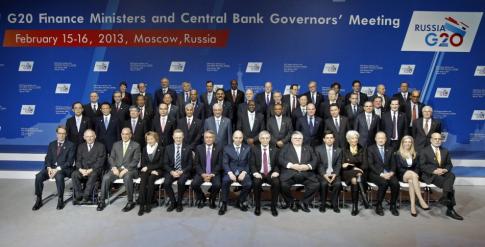G20 Summit

David Cameron and Barack Obama will not hold a formal meeting at a summit in Russia this week, in what some people suggested was a snub because of the Prime Minister’s handling of the Syrian crisis.
By James Kirkup, Peter Dominczak and Peter Foster in Washington
By contrast, the US president will use the G20 summit in St Petersburg to hold formal bilateral meetings with leaders including President François Hollande of France, who is still considering backing the US in attacking Syria over the Assad regime’s alleged use of chemical weapons. Mr Cameron had urged Mr Obama to attack Syria, but last week failed to persuade the House of Commons to back him, forcing him to rule out British involvement in any action.
Despite that setback, the Prime Minister on Wednesday continued to put pressure on Mr Obama to act, suggesting that the Syrian people face “Armageddon” if the US does not intervene. Mr Cameron told MPs: “If no action is taken following this appalling use of chemical weapons, you have to ask yourself what sort of Armageddon are the Syrian people going to be facing?”
Mr Obama faces his own fight to get approval in Congress for missile strikes on Syria.
The US president warned on Wednesday night that the international community’s “credibility is on the line”, over Assad’s alleged use of chemical weapons against civilians. Chuck Hagel, the US defence secretary, said “the likelihood is very high” that Assad would use chemical weapons again unless the US moved to attack him.
On Wednesday night a key Senate committee narrowly passed a resolution to use force, the first step towards confirmation by the full Senate for a final vote early next week.
In other developments:
• Russia insisted that Syrian rebel groups were responsible for the chemical attack, and warned that the US risked hitting nuclear reactors in Syria with missile strikes.
• Syria warned that it will mobilise international allies to retaliate against any US-led strike and insisted that it will not change its position “even if there is World War III”.
• French MPs began debating plans for intervention, with Jean-Marc Ayrault, the prime minister, warning that a failure to act on the “terrifying” use of chemical weapons would risk the stability of the entire Middle East.
• Diplomats admitted that British-backed plans for an international peace conference for Syria were now all but dead.
The two-day G20 meeting opens in St Petersburg amid international tensions over Syria and its civil war. Russia, Syria’s main ally, remains strongly opposed to intervention.
Downing Street on Wednesday night rejected suggestions that the US president was snubbing the Prime Minister at the summit, which follows signs of strain between London and Washington over Syria. White House aides this week disclosed Mr Obama had expressed his irritation at Mr Cameron’s failure to carry the Commons, leaving him isolated. Officials described Downing Street’s defeat as “bungled” and “embarrassing”.
The White House has let it be known privately the administration was unhappy that Downing Street was “stealing the front pages” by briefing journalists that Mr Cameron was leading Mr Obama towards action in Syria.
Downing Street insisted the lack of a formal meeting in St Petersburg did not reflect coolness between the two leaders. A source said: “It is a sign of the strength of the relationship – they speak regularly so we don’t need to go chasing meetings at every summit. Unlike previous British leaders, the Prime Minister is confident in his relationship with the president.” Officials also insisted that Mr Cameron and Mr Obama would speak informally during the St Petersburg meeting, and noted that UK-US “bilaterals” were not generally held at G20 summits.
Hopes of securing a peace conference on Syria — labelled Geneva II by diplomats — look to be fading after government sources admitted it was no longer “on the table”. The Prime Minister is not expected to use the G20 meeting to push for the conference. He will instead call for a robust humanitarian response by pushing for “clear routes” for aid convoys.
Tory MPs on Wednesday night told William Hague, the Foreign Secretary, that Downing Street’s handling of the vote has damaged Britain’s standing. During a meeting of the 1922 committee in the House of Commons, Edward Leigh and John Redwood warned Mr Hague that Britain’s reputation had suffered.




 del.icio.us
del.icio.us Digg
Digg

Post your comment